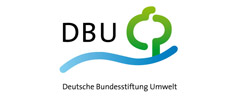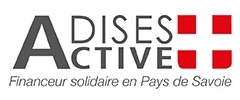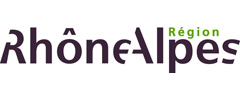Report from Rio+20 ‘Informal-Informal’ Negotiations 19- 23 March 2012
Report on the Rio+20 negotiations written by Tess Vistro, representative from Asia from the Women’s Major Group.
03.04.2012 |Women's Major Group
The Report:
Key issues that needed to be addressed that have particular relevance to rural women in the three day negotiations were:
- poverty eradication
- agriculture and food security
- water and energy
“The Future We Want”
The informal-informal negotiations entered its first day with enthusiasm and optimism buoyed by the starting negotiation document, “The Future We Want”, which laid down most of the member countries negotiating positions.
Poverty eradication
Poverty eradication was affirmed as an overarching concern for member states. Gender empowerment was a watershed in these key topics with most members states (Canada, US, Norway, Iceland, EU, Liechtenstein, Turkey, Australia and New Zealand, Bangladesh) giving a thumbs up on the importance of empowering rural women as critical actors for enhancing agricultural and rural development, as well as food and nutritional security. On water and energy, there is no specific language on gender, but the oral statements delivered by states recognised the disadvantaged position of women with water scarcity and energy poverty. The Vatican’s position to replace gender equality with women and men’s equality, remains a tiny voice in the face of the dominance of gender equality converts among member states.
Bracketing and deletion
But we’re not rejoicing yet. As the negotiations proceeded, disturbing trends emerged with member countries more frequently resorting to “bracketing,” and “deletion” of the text of the negotiation document. “Bracketing” in negotiation language means to reserve and wait for further clarification of the concept, to wait for an improved formulation, or to wait for a proper place in the text in the document. Deletion is used for text considered irrelevant to the topic in question.
The United States, supported most of the time by Canada, presented most of its position in brackets and deletes. It sought clarification on where the formulations in the texts were coming from and whether the language used is consistent with language already agreed elsewhere or currently discussed elsewhere. It also bracketed text on production-distorting subsidies, preferring that it remains under discussion in the World Trade Organization (WTO).
Dangerous text for women’s rights
The ‘informal-informal’ negotiation ended with this text ensconced in the document and with major groups decrying this as dangerous and unacceptable. The Women’s Major Group (WMG) said this will impact negatively on poor women around the world. The US also bracketed text important for most of the groups, like indigenous farmers and right to food. It also replaced ‘equity’ with ‘inclusion’.
Climate Change
Most of the text on climate change was deleted, with the US saying it is best discussed in the climate change negotiations fora. It similarly bracketed long-agreed principles in the Climate Convention, such as ‘the polluter pays’ and the Common But Differentiated Responsibility (CBDR) principle, highlighting current realities that need to be taken into account when applying CBDR (this principle has been undermined in the past).
The United States came out strongly on women’s empowerment, but voted for the deletion of a section on women’s access to land proposed by G-77. An alternative formulation forwarded by Norway remained in place in the text.
Food Sovereignty and its concept
Farmers and women major groups bravely insisted on the language of food sovereignty to replace food security. However, it’s not only the language that is problematic, but the concept too. Food security for the G77 plus China is crucial and is all about the right to development and food and enhancing production of small scale producers, with a land tenure system for rural women. However, action at the national level, to achieve food security is largely hinged on producers’ access to micro finance and credit.
The EU included:
- nutrition and resource-efficient sustainable agriculture
- the importance of small holder farmers including women
- the importance of agricultural research, and invoked the Food and Agriculture Organization (FAO) voluntary guidelines on land tenure systems
- strengthening domestic policies, and
- investment that does not depend on outside resources, and invoked WTO processes on references to trade in the texts
In the end, the WMG committed to continuing to push gender equality issues as crosscutting and standalone issues, and to enshrine gender equality as one of the key principles for any sustainable development goal.
The farmers group remain steadfast in pushing the issues of rural women as one of their priority issues.
Pakistan, as spokesperson for the G77+China block, stressed time and time again during the entire process of the informal-informal negotiation, that this is a “text reading” and “concepts clarification” phase of the various positions of the member countries. What was apparent at this session is that governments have made their positions open and clear, beyond the written submissions. With the end of this step in the negotiation process, further work must then be done, both inside and outside the halls of negotiation rooms.
Related News
Meet the Winners of the Gender Just Climate Solutions Award at COP24
On the 70th anniversary of the Universal Declaration of Human Rights, we awarded Gender Just Climate Solutions Winners at the climate negotiations in Katowice, Poland
11.12.2018
Invitation: Gender Just Climate Solutions Award 2018
10 December, COP24 Katowice
04.12.2018
Getting to the Future We Want
4-7 November, Brussels: European Environmental Bureau’s (EEB) Annual Conference
12.11.2018
GoodFood4All
WECF and partners all over Europe start GoodFood4All Campaign
06.11.2018
#Ruralwomen: join our Women2030 campaign!
15.10.2018





































